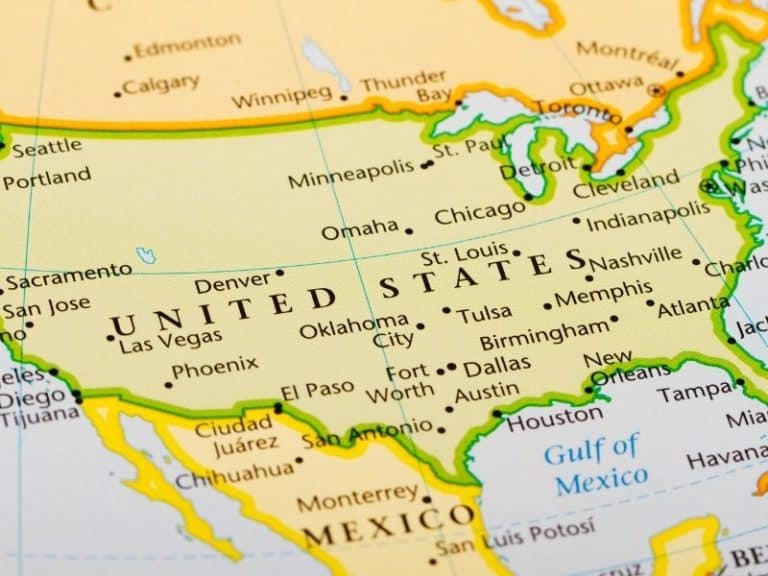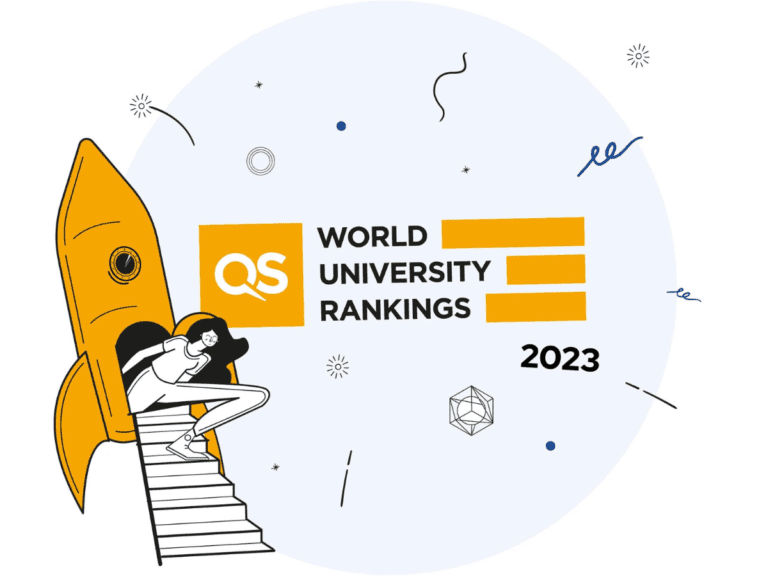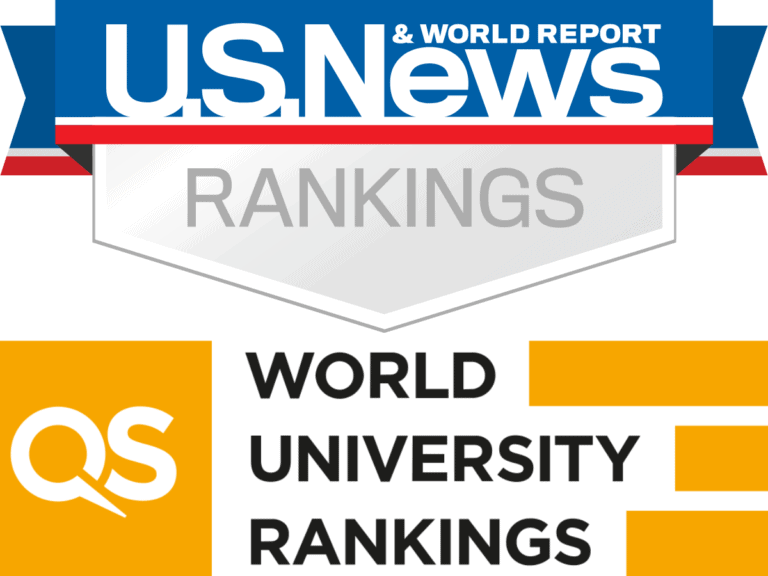18 Best Colleges for Quirky Nerds Students
So, many of your peers consider you socially awkward and unstylish.
Deep inside, however, they know for a fact that your intellectual abilities and technological pursuits will someday take you places — and many are secretly jealous and threatened!
As an Urban Dictionary definition of nerd puts it: a 4-letter word with a 6-figure income.
Nurturing your skills and talents and unlocking your full potential, however, is important as you try to work on the degree program of your choosing. And such is best done, of course, by attending the best-fit college or university.
On the hunt for an institution where a nerd like you is considered the big enchilada rather than a pariah?
In this post, I will talk about some of the best 4-year institutions for nerds and a few others that are normally pushed aside and tormented by the popular kids.
Attending any of these colleges will make you feel safe and at home, thus allowing you to orchestrate the best revenge for those who have tormented you all your life: being more successful than them!
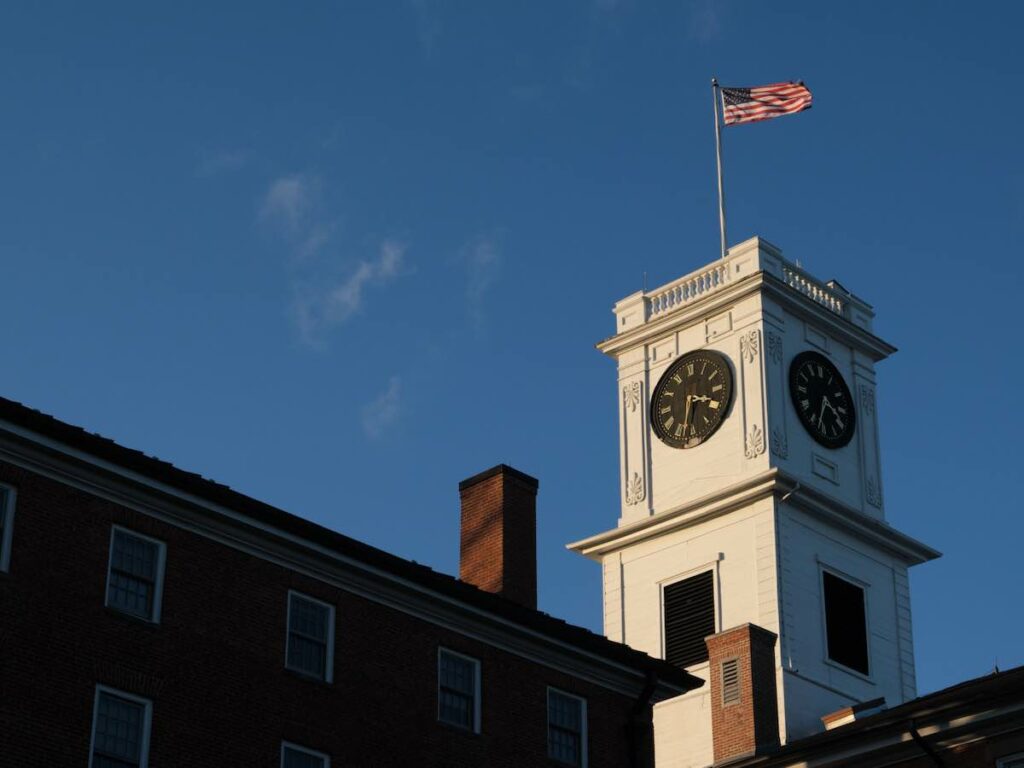
Amherst College
- Location: Amherst, Massachusetts
- School type: Private liberal arts college
- Tuition and fees: $64,100
- Acceptance rate: 9%
- Population: 1,971
- Students per class: Fewer than 20 students in 63% of classes
- Student-to-faculty ratio: 7:1
- Number of majors: 41
According to a report by the Center for the Study of Partisanship and Ideology (CSPI), most stereotypes have been shown to be approximately correct.
And according to many attendees of Amherst College, which US News ranks #2 in National Liberal Arts Colleges, the students at the school are commonly stereotyped as rich, intellectuals, quirky and nerdy.
Some of the most popular majors at Amherst are mathematics, economics and computer science, which is why it’s no wonder that it’s a nerd-friendly institution of higher education.
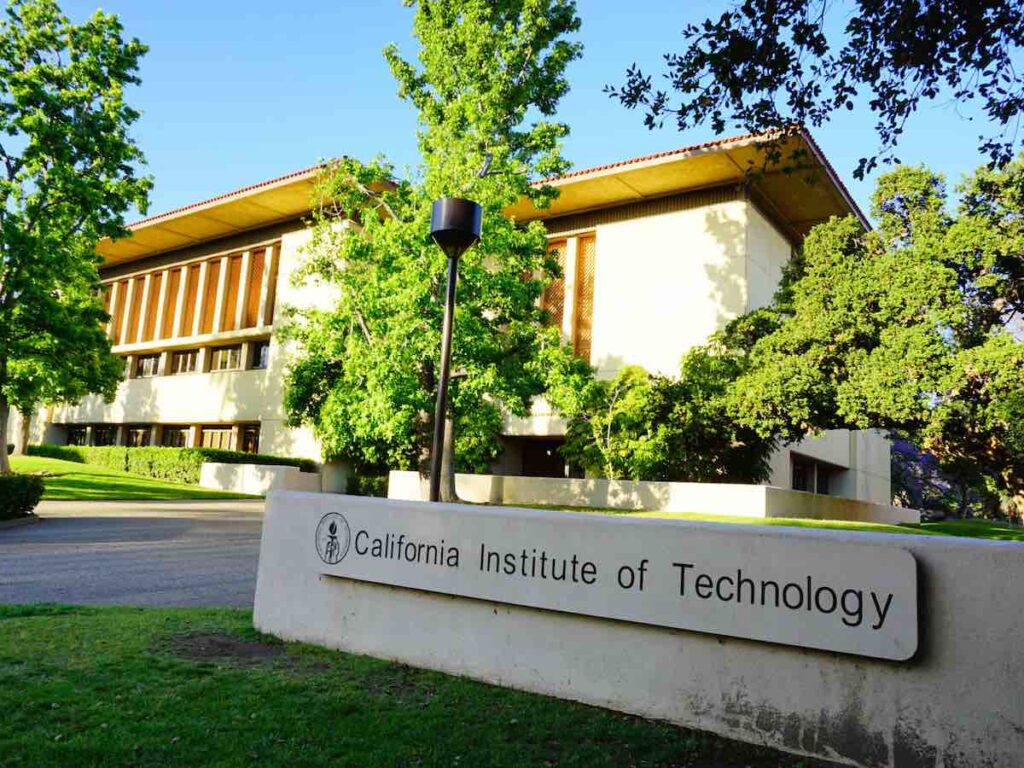
California Institute of Technology
- Location: Pasadena, California
- School type: Private research university
- Tuition and fees: $60,864
- Acceptance rate: 4%
- Population: 2,397
- Students per class: Fewer than 20 students in 71% of classes
- Student-to-faculty ratio: 3:1
- Number of majors: 28
When some of the best tech schools in the land are the ones being talked about, it’s for certain that the California Institute of Technology will roll out of people’s mouths effortlessly.
Read Also: Caltech vs Stanford
Renowned for its science and engineering programs, a quick look at some of the most sought-after majors at CIT will tell you right away that it’s a playground for nerds: chemical engineering, electrical engineering, mechanical engineering, computer science, physics and mathematics.
College Simply says that its AI approximates the average GPA of CIT admits to being 3.97.
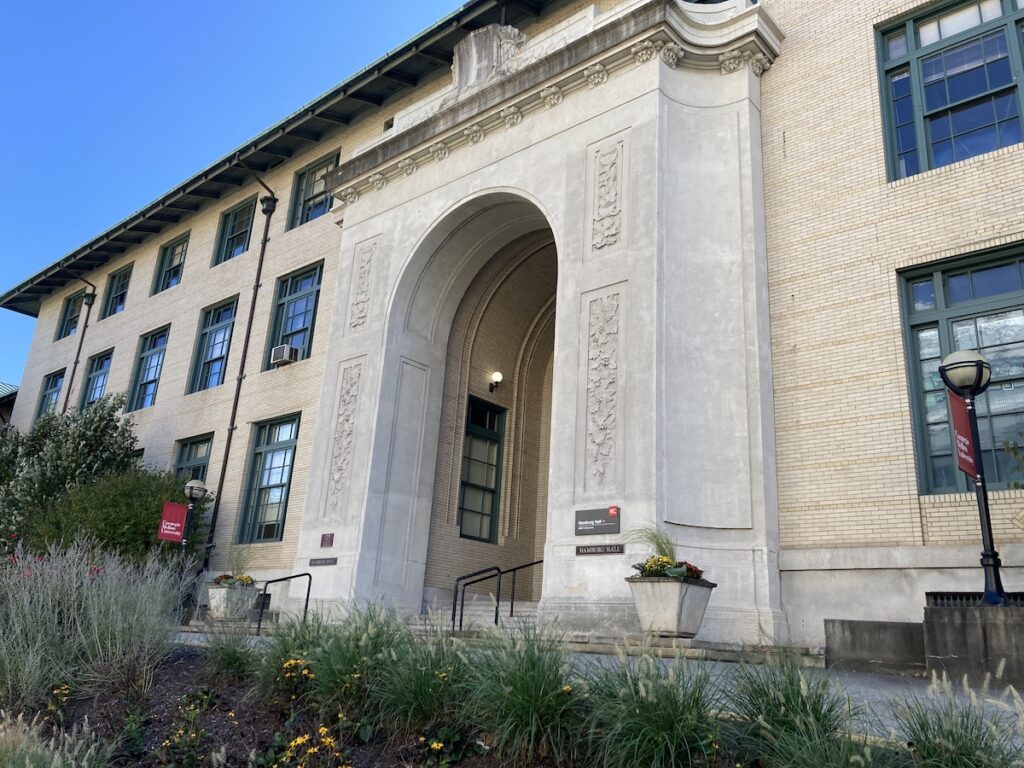
Carnegie Mellon University
- Location: Pittsburgh, Pennsylvania
- School type: Private research university
- Tuition and fees: $61,344
- Acceptance rate: 14%
- Population: 15,818
- Students per class: Fewer than 20 students in 70% of classes
- Student-to-faculty ratio: 6:1
- Number of majors: 80
The general consensus is that Carnegie Mellon University, which is considered a New Ivy and has a Carnegie R1 designation for having very high research activity, is the home of computer science nerds in the US.
It goes without saying that computer science is the top major at the selective institution, followed by all sorts of engineering and math fields.
Here are some of the most recent Niche rankings of Carnegie that solidify the fact that it tends to attract lots of nerds: #1 in Best Colleges for Information Technology in America and #4 Best Colleges for Computer Science in America.
Case Western Reserve University
- Location: Cleveland, Ohio
- School type: Private research university
- Tuition and fees: $62,234
- Acceptance rate: 30%
- Population: 12,142
- Students per class: Fewer than 20 students in 59% of classes
- Student-to-faculty ratio: 9:1
- Number of majors: 100+
According to Case Western University itself, it’s a community of innovators, knowledge-seekers and groundbreakers, which is located in the premier art district in the country. Nerd alert!
It’s no wonder why some of the most popular majors among the over a hundred options available to undergraduates are computer science, mechanical engineering and biomedical engineering.
At Case Western, which US News ranks #44 in National Universities, admits have an average GPA of 3.9 and SAT and ACT scores of 1410 to 1530 and 32 to 35, respectively.
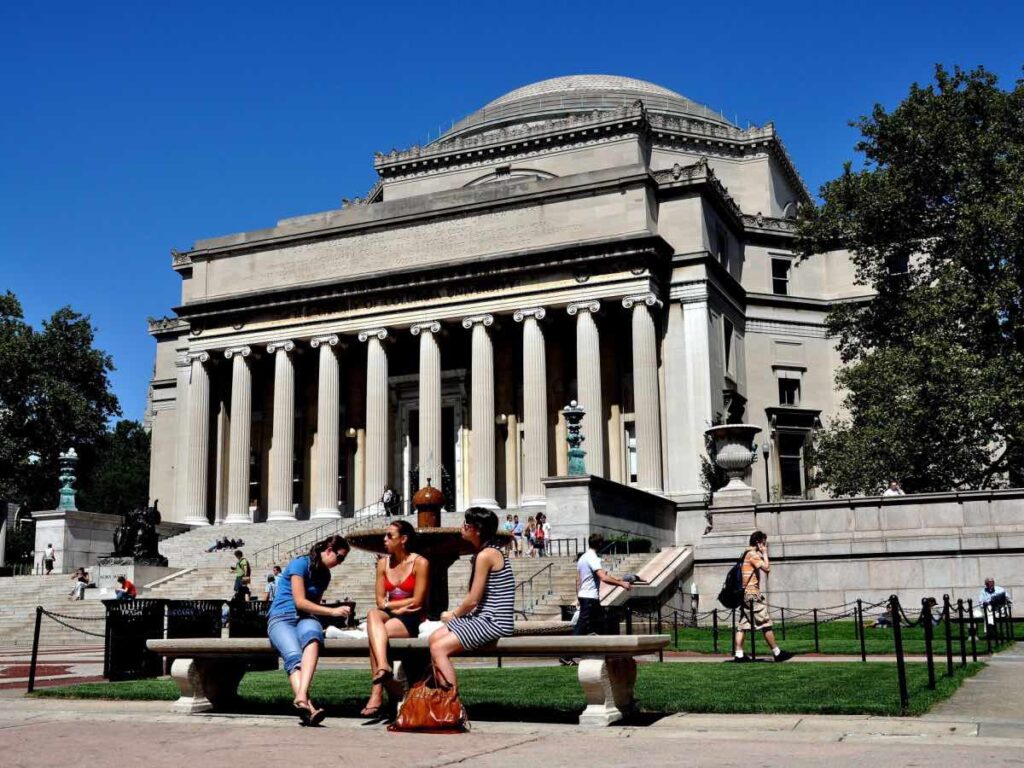
Columbia University
- Location: New York, New York
- School type: Private research university
- Tuition and fees: $65,524
- Acceptance rate: 6%
- Population: 30,135
- Students per class: Fewer than 20 students in 37% of classes
- Student-to-faculty ratio: 6:1
- Number of majors: 100+
There are all sorts of nerds, and some of them are book nerds.
And one quick look at one of the supplemental essay prompts at Columbia University, which, as everyone knows, is an Ivy League school, makes it clear that it wants to give them an edge in the admissions process:
List the titles of the books, essays, poetry, short stories or plays you read outside of academic courses that you enjoyed most during high school.
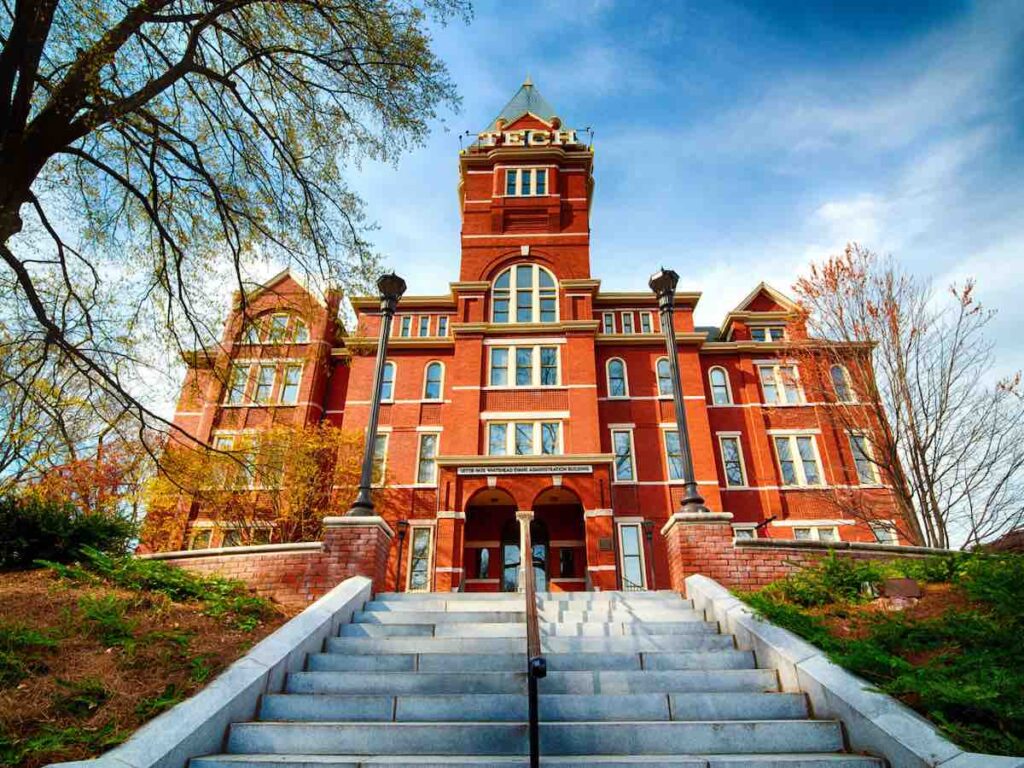
Georgia Institute of Technology
- Location: Atlanta, Georgia
- School type: Public research university
- Tuition and fees: $11,764 (in-state) and $32,876 (out-of-state)
- Acceptance rate: 18%
- Population: 43,844
- Students per class: Fewer than 20 students in 34% of classes
- Student-to-faculty ratio: 21:1
- Number of majors: 130+
In the US, the largest and some of the most highly-ranked engineering and computing colleges can be found on the 400-acre urban campus of Georgia Institute of Technology. And because of this alone, it’s a great school for nerds.
Among the wide variety of technologically focused majors available, some of the most popular at GIT include information science, mechanical engineering, industrial engineering, biomedical engineering, aerospace engineering, electrical engineering, chemical engineering, civil engineering and computer hardware engineering.
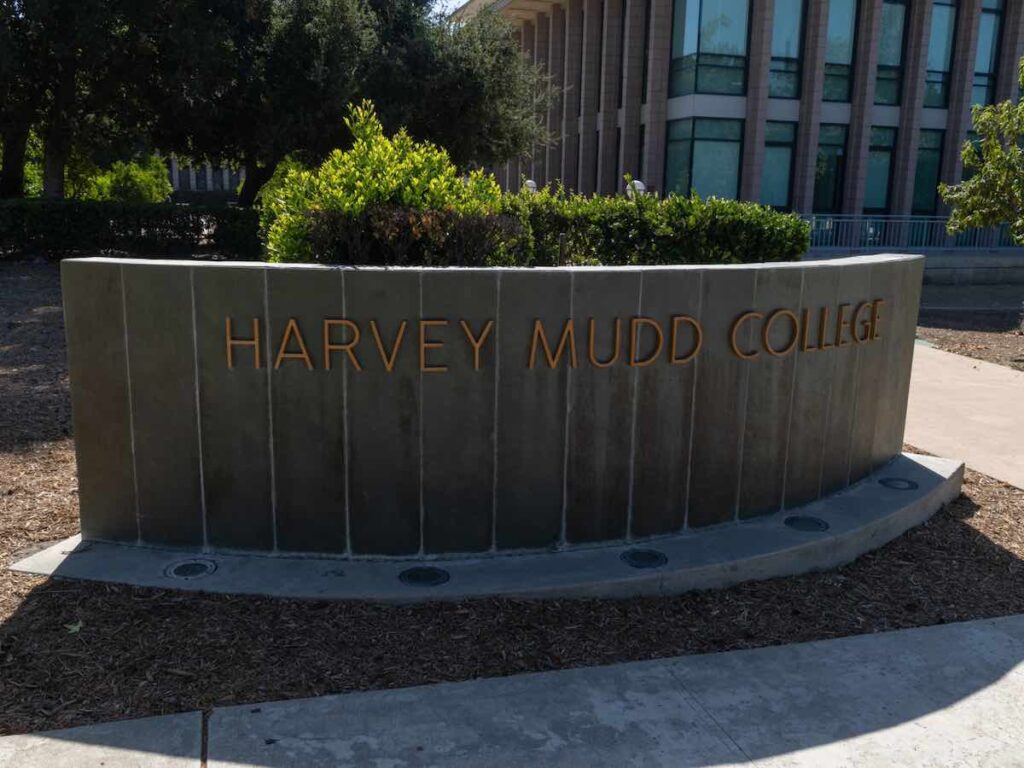
Harvey Mudd College
- Location: Claremont, California
- School type: Private liberal arts college
- Tuition and fees: $62,817
- Acceptance rate: 10%
- Population: 905
- Students per class: Fewer than 20 students in 58% of classes
- Student-to-faculty ratio: 9:1
- Number of majors: 10
Many of the students attending Harvey Mudd College, which is ranked #29 in National Liberal Arts Colleges by US News and considered a New Ivy, admit that most of them are nerds — and that each kind is represented quite well on campus.
However, they emphasize, too, that they tend to have more fun than their counterparts at other tech schools.
It is estimated that the average GPA of freshmen students admitted to Harvey Mudd is 3.96. On the other hand, their average SAT and ACT composite scores range from 1480 to 1560 and 34 to 36, respectively.
Haverford College
- Location: Haverford, Pennsylvania
- School type: Private liberal arts college
- Tuition and fees: $63,348
- Acceptance rate: 18%
- Population: 1,420
- Students per class: Fewer than 20 students in 68% of classes
- Student-to-faculty ratio: 9:1
- Number of majors: 35
Intellectual, socially awkward, snobby, bookworms — these are how some Haverford College students describe themselves.
It isn’t surprising why the attendees of the said school, which is known for majors such as biology, chemistry, economics, information science, mathematics and political science, are stereotyped as nerds.
As a matter of fact, many say they live inside the so-called Haverbubble and refuse to acknowledge the outside world.
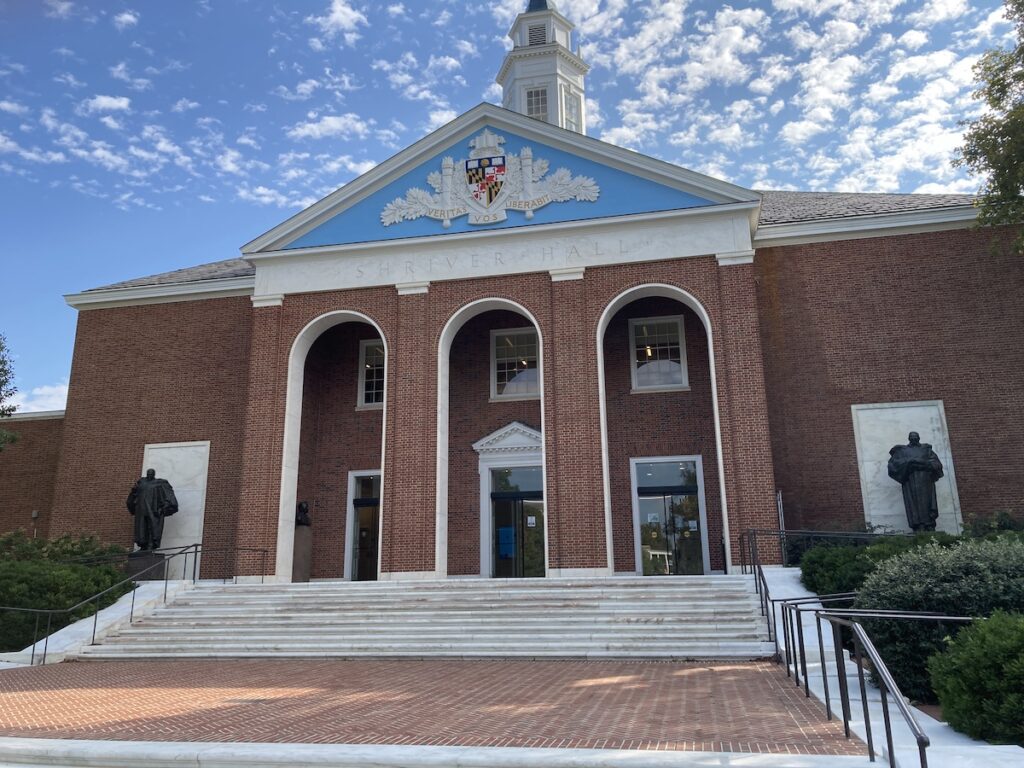
Johns Hopkins University
- Location: Baltimore, Maryland
- School type: Private research university
- Tuition and fees: $60,480
- Acceptance rate: 8%
- Population: 32,049
- Students per class: Fewer than 20 students in 79% of classes
- Student-to-faculty ratio: 6:1
- Number of majors: 52
Students at Johns Hopkins University are well aware of the fact that they are often stereotyped as cutthroat individuals who will do just about anything and everything to succeed. They also admit to being seen as nerds in general.
The highly selective institution, which is ranked by US News #7 in National Universities, #9 in Best Value Schools and #13 in Best Undergraduate Engineering Programs, is also often seen as home to a lot of pre-med students.
True enough, some of the most popular majors at Johns Hopkins include public health, neuroscience and bioengineering.
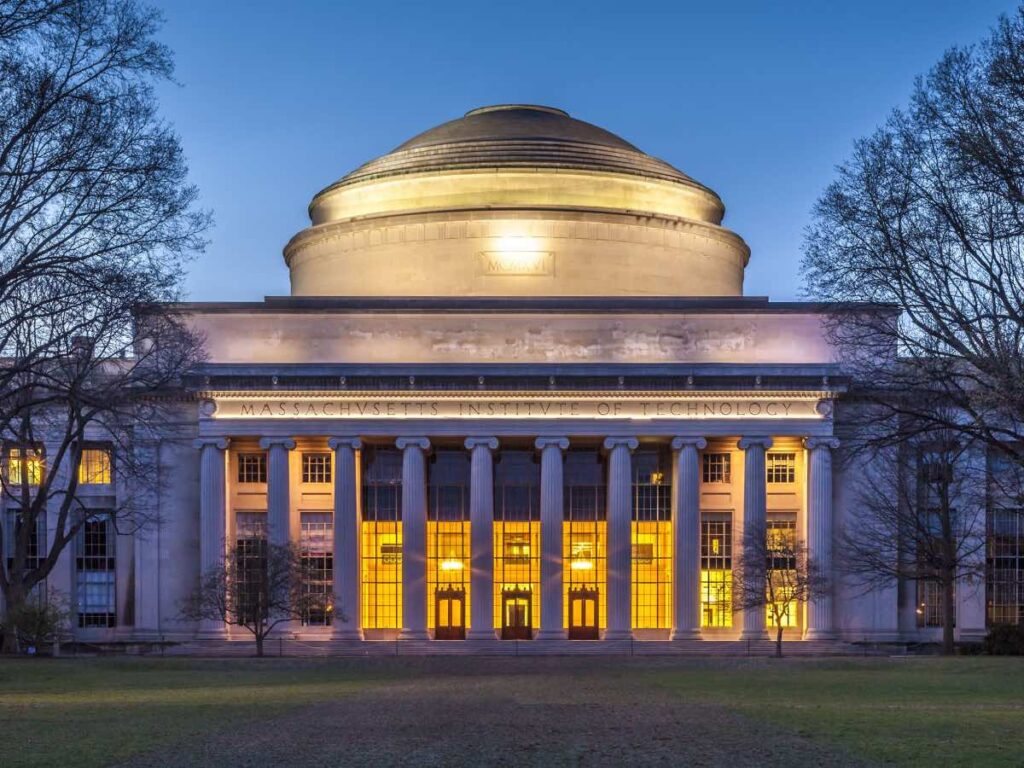
Massachusetts Institute of Technology
- Location: Cambridge, Massachusetts
- School type: Private land-grant research university
- Tuition and fees: $55,878
- Acceptance rate: 4%
- Population: 11,254
- Students per class: Fewer than 20 students in 25% of classes
- Student-to-faculty ratio: 3:1
- Number of majors: 36
Making the Massachusetts Institute of Technology popular are its programs in engineering and the physical sciences.
It doesn’t come as a surprise that computer science, aerospace engineering, mechanical engineering, mathematics and physics are some of the most sought-after majors among its undergraduate students.
Some of the highest-paid MIT graduates are those who majored in mathematics ($120,300 per year), computer science ($118,100 per year) and electrical engineering ($116,600 per year).
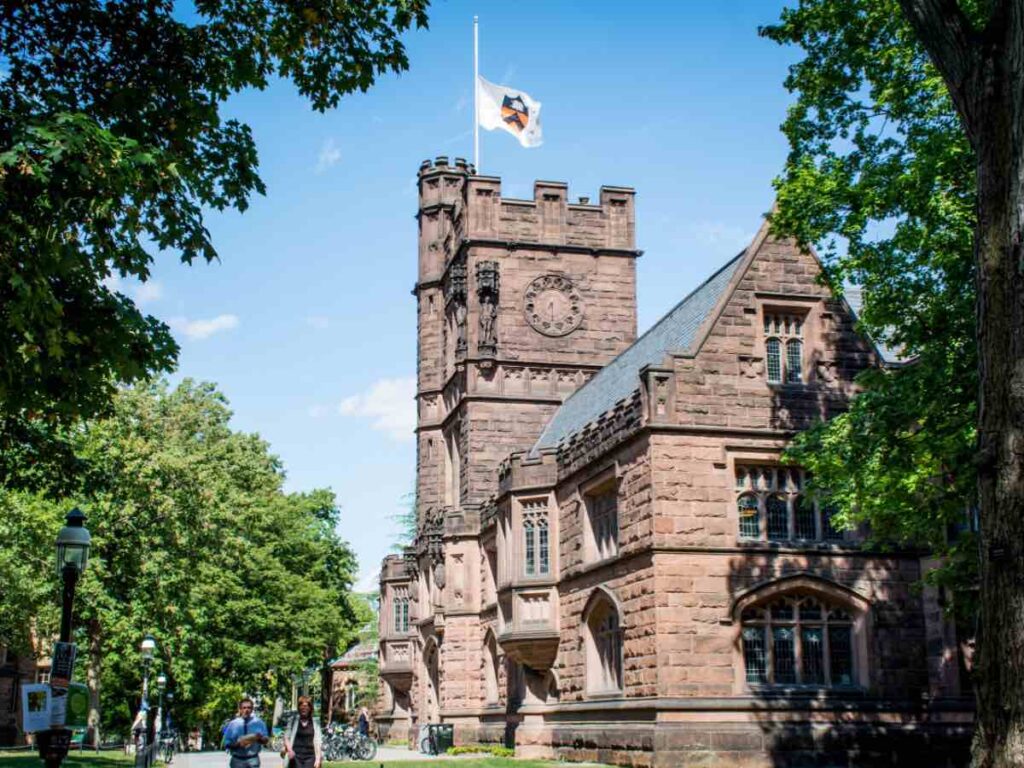
Princeton University
- Location: Princeton, New Jersey
- School type: Private research university
- Tuition and fees: $57,410
- Acceptance rate: 4%
- Population: 8,478
- Students per class: Fewer than 20 students in 76% of classes
- Student-to-faculty ratio: 5:1
- Number of majors: 67
Some students attending Princeton University agree that stereotypes about the Ivy League’s attendees are mostly true. Needless to say, they themselves confirm that many of them are nerds.
Everyone knows that getting into Princeton isn’t easy. Fortunately for music nerds, they are given by the prestigious school an opportunity to make their applications a complete standout. That’s because a supplemental question goes: what song represents the soundtrack of your life at this moment? But you have to make an impact in 50 words or fewer.
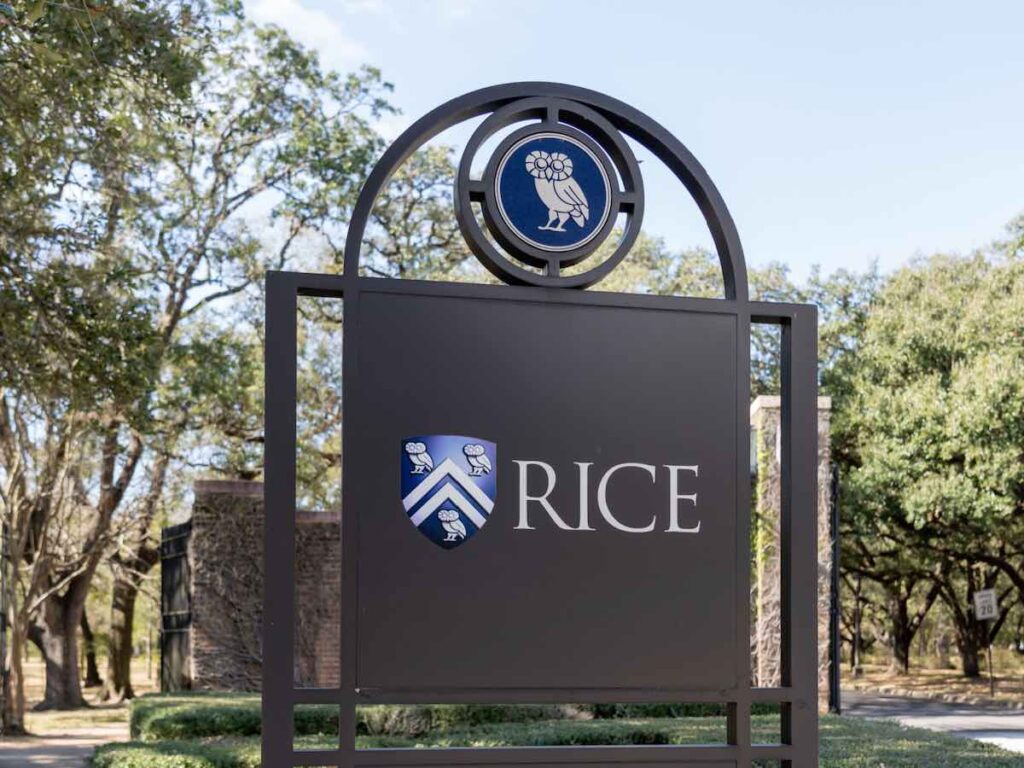
Rice University
- Location: Houston, Texas
- School type: Private research university
- Tuition and fees: $54,960
- Acceptance rate: 9%
- Population: 8,285
- Students per class: Fewer than 20 students in 71% of classes
- Student-to-faculty ratio: 6:1
- Number of majors: 50+
From the outside of the campus of Rice University, attendees are widely considered, as one actual student puts it, mega-nerds. It’s not uncommon, too, for undergraduates to see one another as always studying, which is why they rarely leave their dorm rooms and the school’s library. However, some agree that, from time to time, partying is an option.
It may not be an Ivy League, but Rice is considered a New Ivy and a Southern Ivy. And to get in, it’s not enough that you are a nerd — you have to be smart as the rest of admits, whose average GPA is estimated to be 3.96.
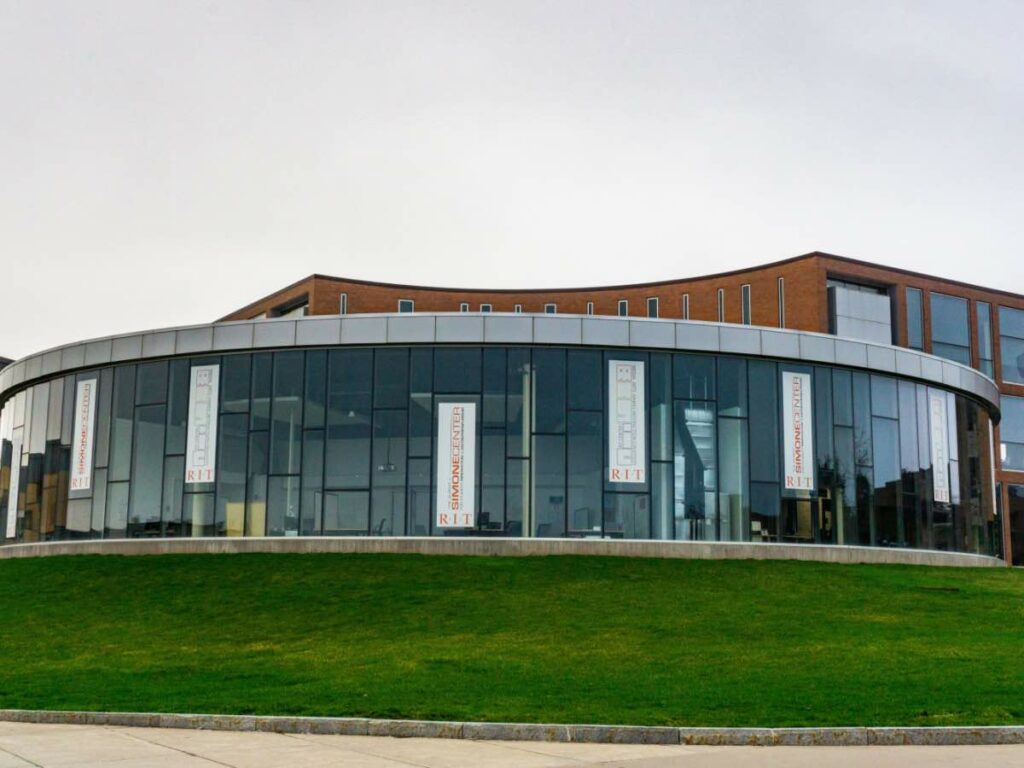
Rochester Institute of Technology
- Location: Rochester, New York
- School type: Private research university
- Tuition and fees: $54,518
- Acceptance rate: 71%
- Population: 16,790
- Students per class: Fewer than 20 students in 50% of classes
- Student-to-faculty ratio: 13:1
- Number of majors: 148
The stereotype about the students of Rochester Institute of Technology is that they are nerdy, shy and anti-social. And the campus is dominated by males, too — only around 34% of the total attendees are females.
Primarily, RIT is popular for its expansive internship programs, cooperative education opportunities and study-abroad options. Its massive 1,300-acre suburban campus is home to the National Technical Institute for the Deaf, which was founded in the mid-1960s in order to provide technical and professional education for deaf students.
Rose-Hulman Institute of Technology
- Location: Terre Haute, Indiana
- School type: Private university
- Tuition and fees: $52,119
- Acceptance rate: 77%
- Population: 2,101
- Students per class: Fewer than 20 students in 48% of classes
- Student-to-faculty ratio: 11:1
- Number of majors: 18
Founded back in 1874, Rose-Hulman Institute of Technology is primarily known for its STEM academic programs. Engineering majors, it goes without saying, are some of the most popular and highly ranked, too. As a matter of fact, US News ranks the institution #1 in Best Undergraduate Engineering Programs.
Despite having awesome engineering and other STEM majors such as computer science, mathematics and physics, getting admitted to Rose-Hulman isn’t that hard — but do keep in mind that the average GPA of those who get in is 3.9.
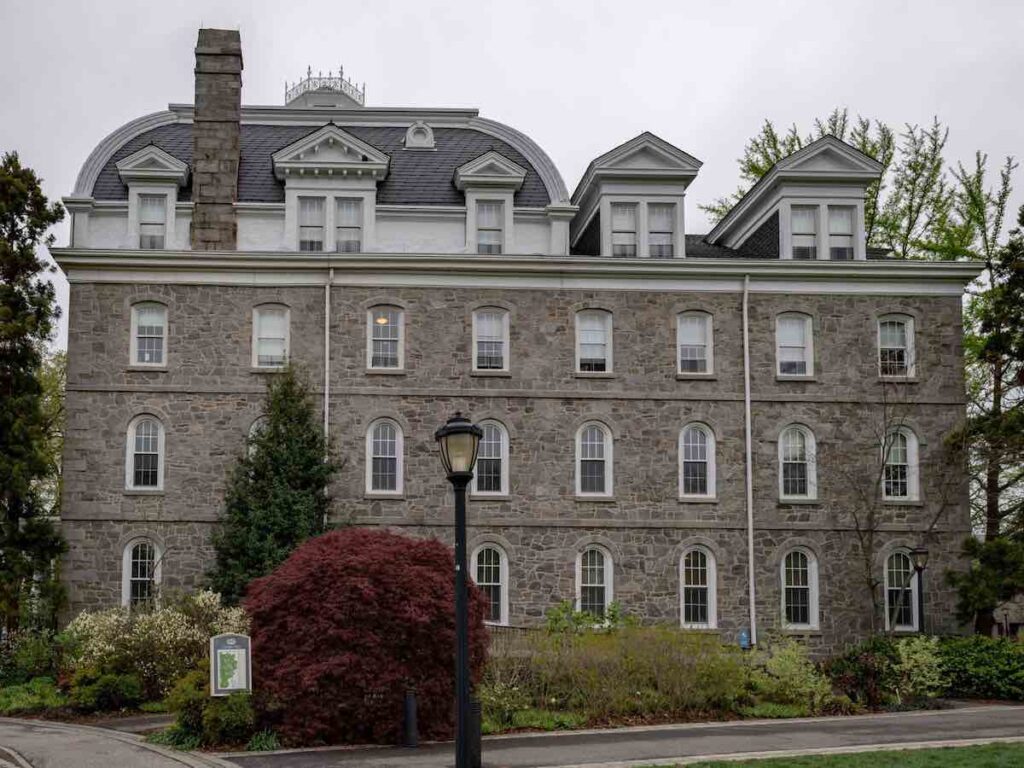
Swarthmore College
- Location: Swarthmore, Pennsylvania
- School type: Private liberal arts college
- Tuition and fees: $59,328
- Acceptance rate: 8%
- Population: 1,651
- Students per class: Fewer than 20 students in 67% of classes
- Student-to-faculty ratio: 8:1
- Number of majors: 61
It may be a small liberal arts college alright. However, what makes Swarthmore College different from its peers is that it offers undergraduate engineering programs. In addition, its undergraduates can take some of their courses at Haverford College and Bryn Mawr College, both of which are highly-ranked and selective liberal arts institutions.
And speaking of which, the students at Swarthmore are commonly perceived as intelligent and hard-working individuals, although many immediately think that they are also ugly, weird and nerdy.
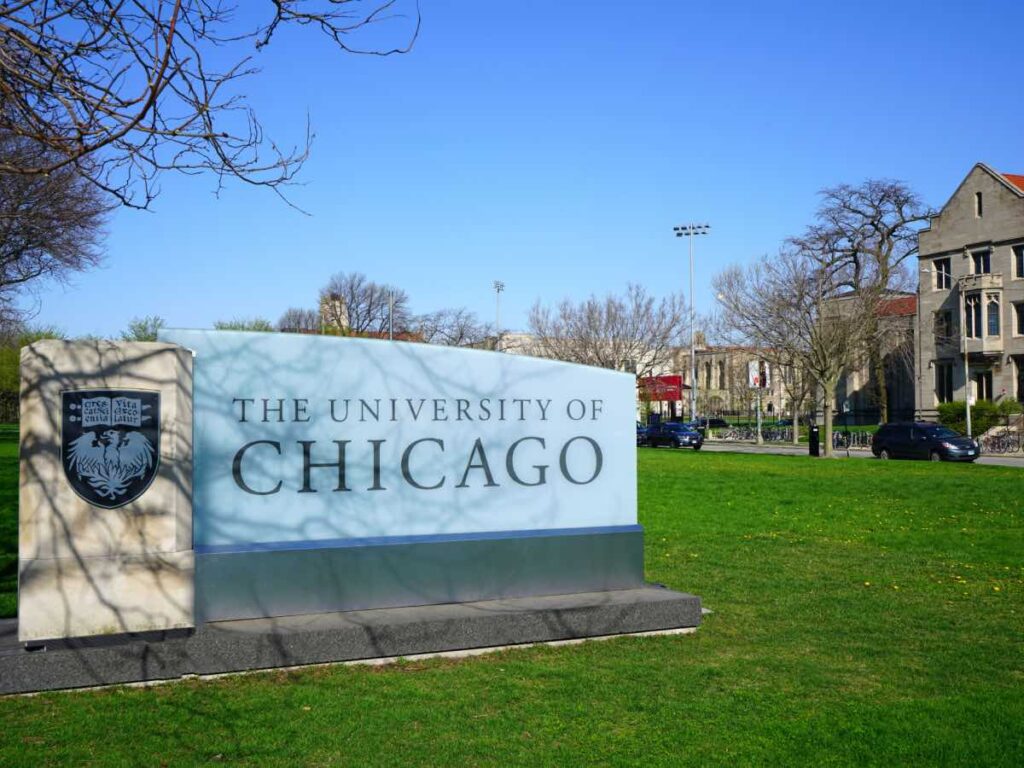
University of Chicago
- Location: Chicago, Illinois
- School type: Private research university
- Tuition and fees: $62,940
- Acceptance rate: 6%
- Population: 16,274
- Students per class: Fewer than 20 students in 78% of classes
- Student-to-faculty ratio: 5:1
- Number of majors: 53
As some students put it, the University of Chicago is where fun goes to die. The general consensus among the attendees of the elite institution, which is often mistaken as an Ivy League but is considered a Hidden Ivy and an Ivy Plus school, is that the campus is packed with ridiculously smart but boring, socially awkward, quirky and nerdy people.
What advice would a wisdom tooth have? Believe it or not, that’s one of the supplemental questions to answer!
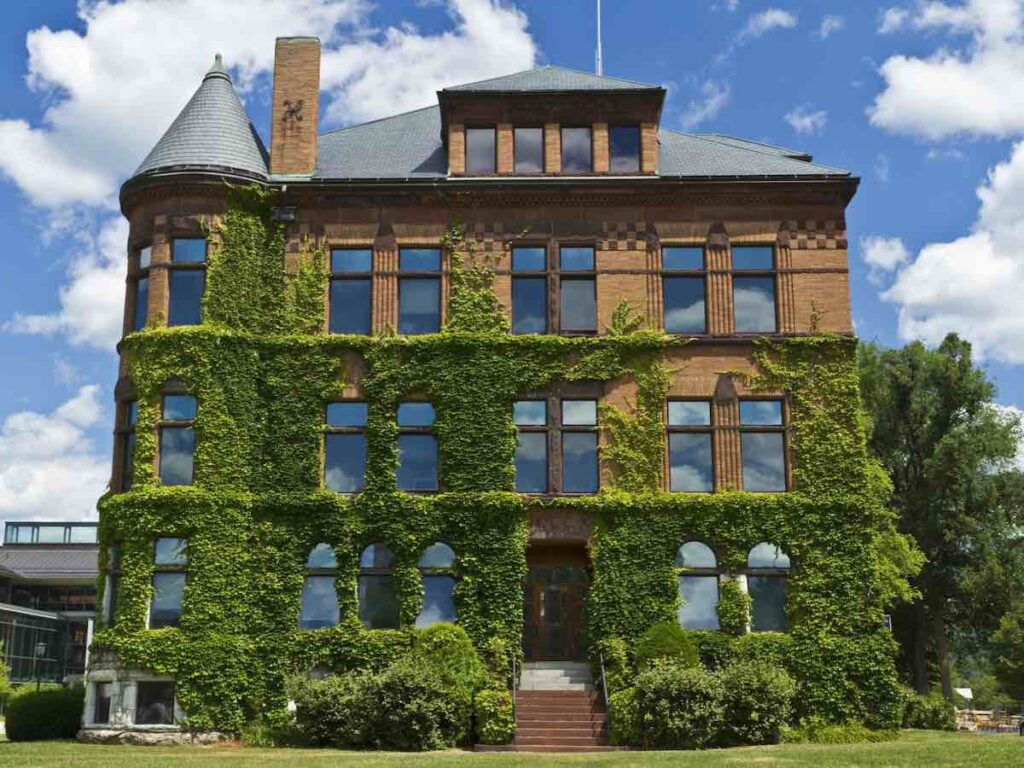
Williams College
- Location: Williamstown, Massachusetts
- School type: Private liberal arts college
- Tuition and fees: $61,770
- Acceptance rate: 9%
- Population: 2,216
- Students per class: Fewer than 20 students in 74% of classes
- Student-to-faculty ratio: 7:1
- Number of majors: 36
It’s true that there are plenty of nerds on campus, say the students of Williams College themselves. However, they add that it’s just that some of them are simply smart and hard-working and not necessarily nerds.
Some of the most popular majors at Williams, which is ranked #1 in National Liberal Arts Colleges by US News, are biology, chemistry, computer science and mathematics, all of which can electrify nerds. But then there are also sought-after majors that are not necessarily commonly for non-nerds. They include arts, political science and English.
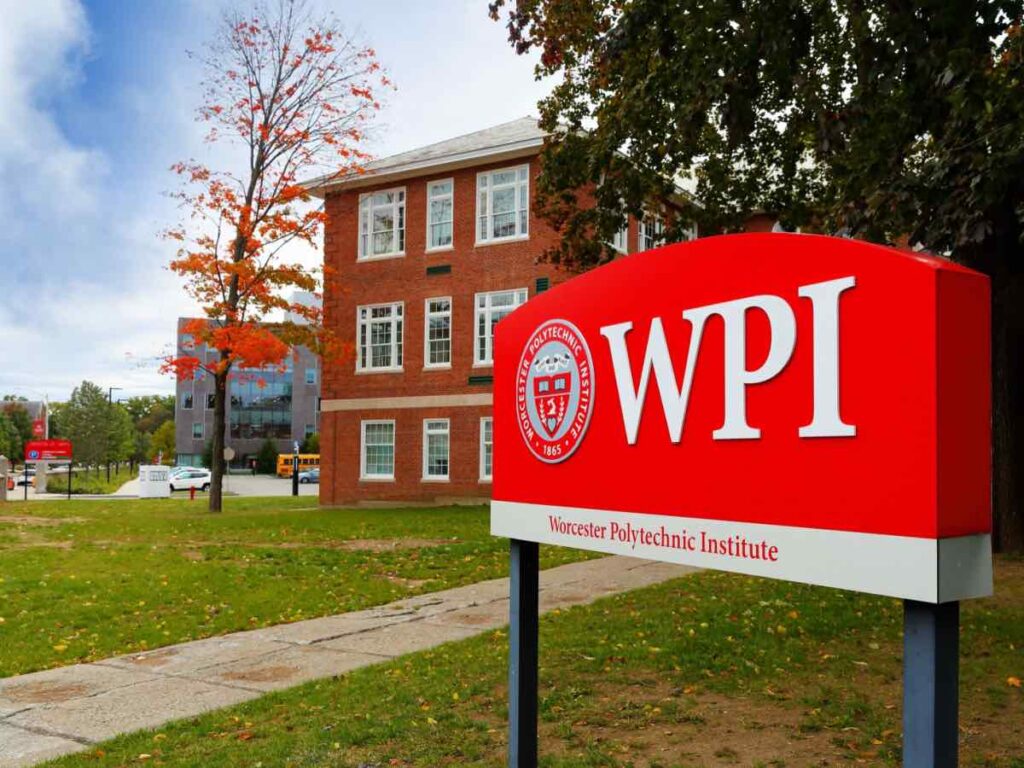
Worcester Polytechnic Institute
- Location: Worcester, Massachusetts
- School type: Private research university
- Tuition and fees: $56,896
- Acceptance rate: 60%
- Population: 7,230
- Students per class: Fewer than 20 students in 67% of classes
- Student-to-faculty ratio: 14:1
- Number of majors: 70+
Computer science and all sorts of engineering majors such as aerospace, biomedical, chemical, civil, electrical, industrial and mechanical — these are the top majors at Worcester Polytechnic Institute, which is considered one of the country’s first engineering and technology schools as well as a global leader in project-based learning.
Students who are attending WPI agree that they are often seen as nerds and outcasts, especially back in high school. But its campus is known for being diverse, too, in terms of personality traits and backgrounds.
College can be scary for every student who is about to bid high school adieu. However, it can be especially terrifying for nerds as it’s a much bigger and more populated world. But since they love attending classes and doing projects, not to mention bumping into many other nerds and building a squadron is very much likely, excelling in a postsecondary environment can be easy.
Still, it would be a wonderful idea to go to an institution where they can shine like no other!
When building a college list, feel free to add any of the above-mentioned colleges that are great for nerds and just about any other outcasts in high school. But take your time researching them further for the most successful and rewarding college career.
Read Next: 7 Great Colleges That Are Easier to Get Into
Disclaimer: The views and opinions expressed in this article are those of the authors and do not necessarily represent those of the College Reality Check.
